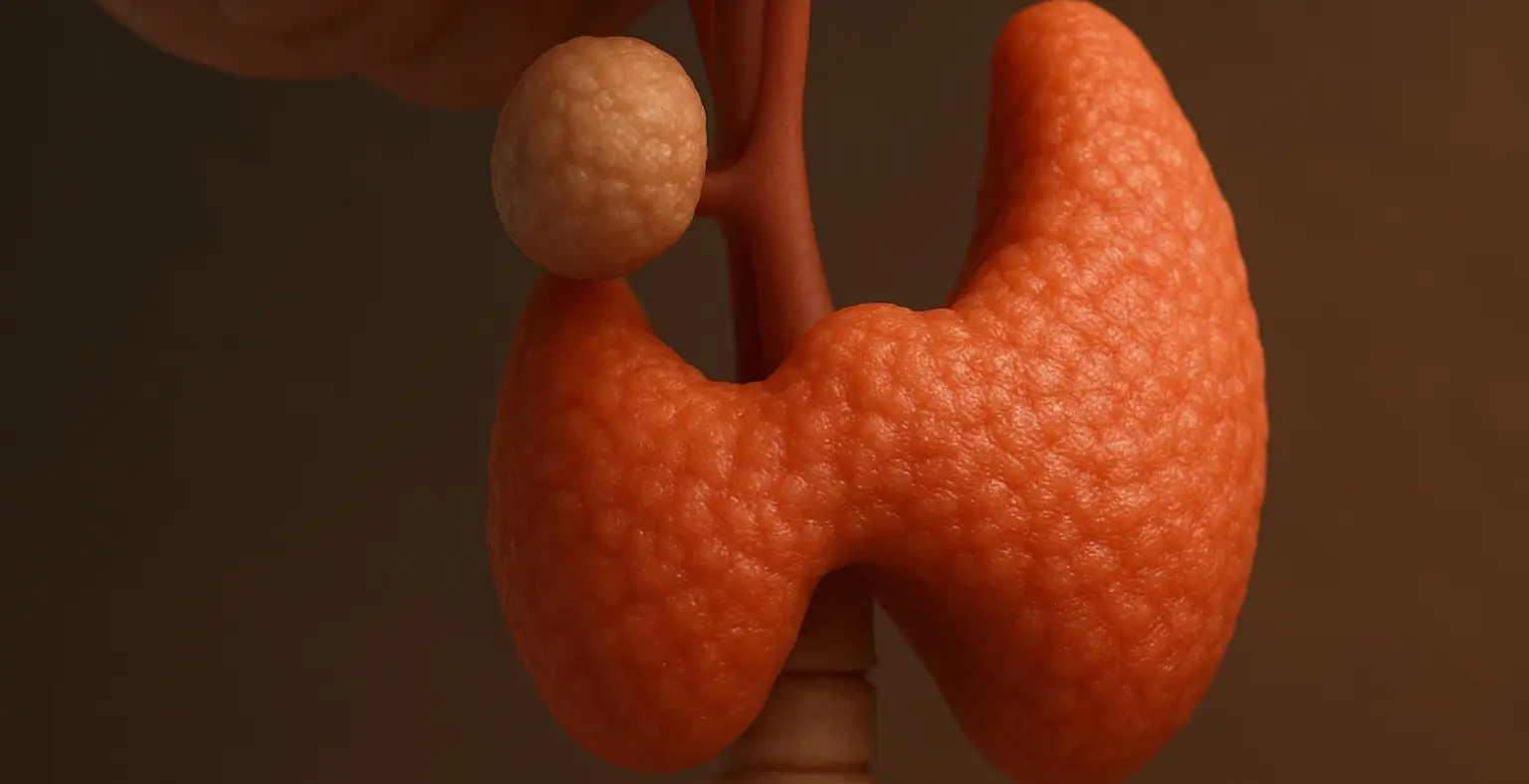Hyperthyroidism Introduction
- Hyperthyroidism of thyroid gland is a butterfly-shaped endocrine gland located in the neck, in front of the trachea.
- It produces hormones that regulate metabolism, energy generation, and overall growth and development.
- Thyroid diseases are common and can affect the structure or function of the thyroid gland.
- They are broadly classified into hypothyroidism, hyperthyroidism, thyroid nodules, and thyroid cancer.
- It overactive thyroid, occurs when the thyroid gland produces excessive amounts of thyroid hormones, speeding up the body’s metabolic processes.
Causes
- Graves’ Disease: An autoimmune disorder and the most common cause of hyperthyroidism, where antibodies stimulate the thyroid to produce excess hormones.
- Thyroid Nodules: Toxic adenomas or multinodular goiter can lead to overproduction of thyroid hormones.
- Thyroiditis: Inflammation of the thyroid gland can cause temporary hyperthyroidism.
- Excessive Iodine: High iodine intake from diet or medications can lead to hyperthyroidism.
- Medications: Certain medications can induce it.
Symptoms
- Weight loss
- Heat intolerance
- Increased appetite
- Tremors
- Palpitations and tachycardia (rapid heart rate)
- Anxiety and irritability
- Increased sweating
- Goiter (enlarged thyroid gland)
- Menstrual irregularities
Diagnosis
- Blood Tests: Measurement of TSH and free T4 levels. Low TSH and high T4 indicate hyperthyroidism.
- Thyroid Antibody Tests: To diagnose Graves’ disease.
- Radioactive Iodine Uptake Test: To determine the cause of measuring how much iodine the thyroid gland absorbs.
Advertisements
Pathophysiology of Hyperthyroidism:
- Graves’ Disease: Autoimmune disorder where antibodies stimulate the thyroid gland to produce excessive thyroid hormones.
- Thyroid Nodules: Overactive nodules can produce excess thyroid hormones independently.
Treatment
- Antithyroid Medications: Methimazole and propylthiouracil reduce thyroid hormone production.
- Radioactive Iodine Therapy: Destroys overactive thyroid cells.
- Beta-Blockers: Manage symptoms like rapid heart rate and tremors.
- Thyroid Surgery: Partial or complete removal of the thyroid gland in severe cases.

